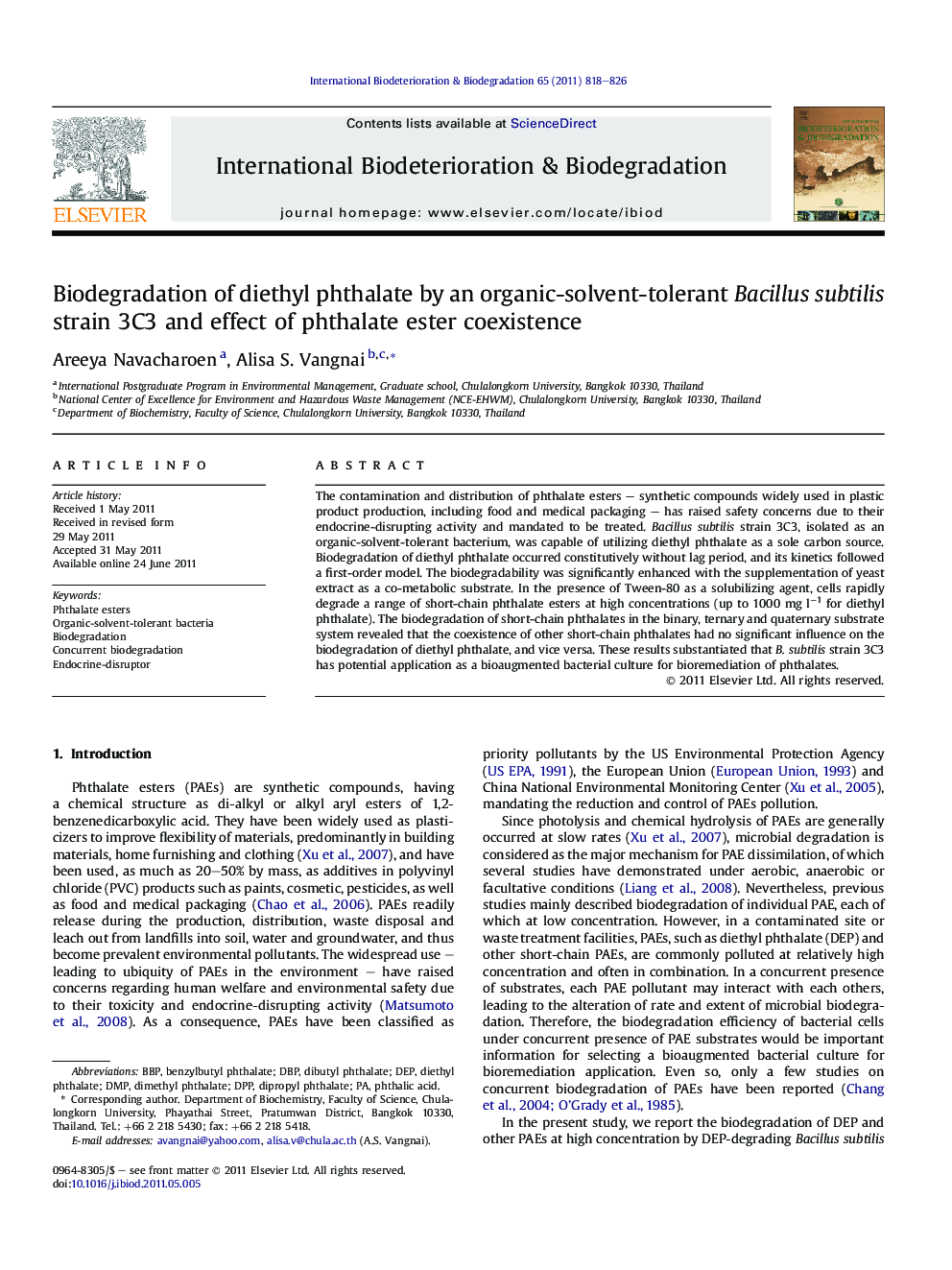| Article ID | Journal | Published Year | Pages | File Type |
|---|---|---|---|---|
| 4365336 | International Biodeterioration & Biodegradation | 2011 | 9 Pages |
The contamination and distribution of phthalate esters – synthetic compounds widely used in plastic product production, including food and medical packaging – has raised safety concerns due to their endocrine-disrupting activity and mandated to be treated. Bacillus subtilis strain 3C3, isolated as an organic-solvent-tolerant bacterium, was capable of utilizing diethyl phthalate as a sole carbon source. Biodegradation of diethyl phthalate occurred constitutively without lag period, and its kinetics followed a first-order model. The biodegradability was significantly enhanced with the supplementation of yeast extract as a co-metabolic substrate. In the presence of Tween-80 as a solubilizing agent, cells rapidly degrade a range of short-chain phthalate esters at high concentrations (up to 1000 mg l−1 for diethyl phthalate). The biodegradation of short-chain phthalates in the binary, ternary and quaternary substrate system revealed that the coexistence of other short-chain phthalates had no significant influence on the biodegradation of diethyl phthalate, and vice versa. These results substantiated that B. subtilis strain 3C3 has potential application as a bioaugmented bacterial culture for bioremediation of phthalates.
► B. subtilis 3C3 constitutively degrades short-chain phthalates at high concentration. ► The concurrent biodegradation of phthalate mixture was effectively occurred in B. subtilis 3C3. ► No adverse effect on diethyl phthalate degradation in concurrent presence of phthalate mixture. ► B. subtilis 3C3 has potential application as bioaugmented culture for phthalate bioremediation.
